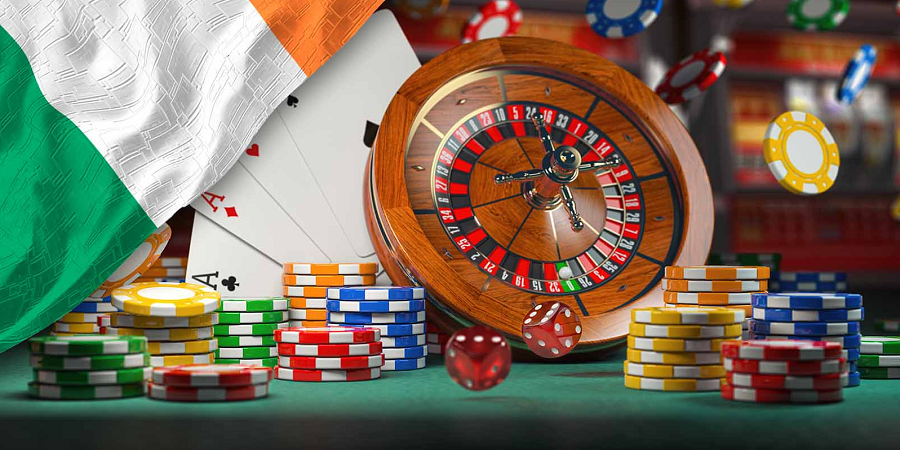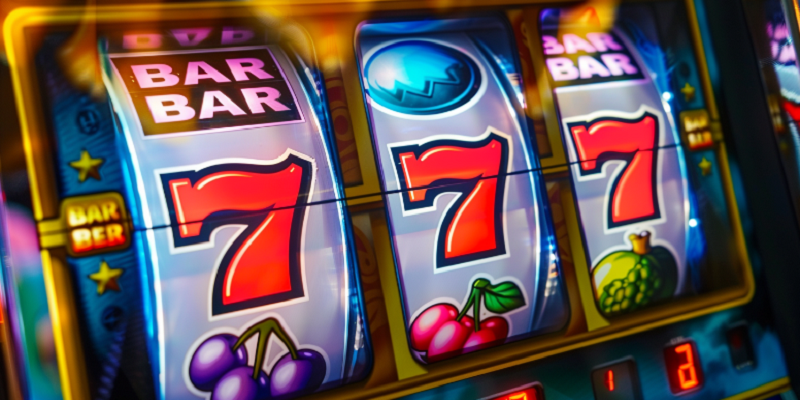If you’ve been around betting circles in Ireland for a few years, you’ll have noticed a quiet shift in how folks play. The days when every player chased massive signup bonuses or “risk-free” £10 bets are starting to fade. These days, it’s the €1 and €5 deposits that are stealing the spotlight. Not because people have suddenly become stingy, but because smaller stakes offer something far more valuable — control.
The slow drift away from free bets
Let’s face it: free bets used to sound like manna from heaven. Deposit a tenner, get a free flutter, maybe cash out a bit if luck’s on your side. But the reality hit hard when punters realised those “freebies” came wrapped in 30x wagering and tiny withdrawal caps. That’s why many Irish bettors — especially those who treat gambling as a calculated hobby rather than a rollercoaster — started moving toward sites that let them play small and smart.
With €1–€5 deposits, you can still have fun, test how a platform works, and keep your budget in check. It’s like dipping your toe in the water before diving in. You get to see how fast withdrawals really are, how fair the games feel, and how quickly support answers when something goes wrong — all without burning through your weekend bankroll.
What “low deposit” really means in Ireland
When people say “low minimum deposit”, they’re often thinking of that magical €1 number. In practice, the cutoff varies. Some casinos will take €1 through e-wallets like Skrill or Jeton, while others need €5 or more if you’re using Visa or Mastercard. A few crypto-friendly brands even let you deposit the equivalent of €1 in USDT or Litecoin, though that’s not everyone’s cup of tea.
But the big takeaway is this: low deposit doesn’t automatically mean low quality. The best platforms that allow micro-deposits still carry full licences, publish RTP rates, and run proper KYC checks. The difference is just in how they let you start small.
One thing to watch out for, though, is hidden friction. Sometimes a site claims “€1 minimum”, but when you click through, your card processor rejects anything below €5. Or worse, your first withdrawal gets blocked because your “bonus balance” technically hasn’t cleared yet. So before you drop even a single euro, check the payment terms. If the fine print looks like it was written by a tax lawyer, maybe steer clear.
The value gambling mindset
BettingKingdom readers know the term “value betting” — chasing odds that pay more than they should based on probability. The same logic applies to low-stake casino play. Let’s call it “value gambling.”
Instead of chasing big wins, you’re chasing efficient entertainment. You look for games with 96 percent RTP or higher. You choose medium-volatility titles that keep your session lively without wiping your balance after five spins. And you budget the same way a shrewd bettor does: 1–2 percent of your total balance per round, stop after a set loss, and log your results.
Think of it like testing a tipster: you don’t go all-in on their first pick. You track their performance over time. With casinos, the principle’s identical — test, observe, adjust.
How to test a platform with a micro-deposit
You don’t need spreadsheets or fancy tools. Ten minutes is plenty to vet a new casino.
- Deposit €3 or €5 with your preferred method.
- Play two or three games from different providers — one slot, one live game, maybe a quick table session.
- Check the loading times, sound sync, and how well the mobile interface runs on your 4G.
- Try a withdrawal, even if it’s a small one. See how long it takes to land.
- Chat with support — not to cause trouble, but to see how human the replies feel.
If all that goes smoothly, you’ve learned more in one evening than most people do after burning €200 in “testing bonuses.”
Payments that actually work for small deposits
Here’s the truth: not every payment method plays nice with €1 deposits. Debit cards often start at €5 or €10. Some e-wallets allow €1, but you’ll find hidden transaction fees. Bank transfers? Forget it — those belong in the slow lane.
For Irish players, the best combo tends to be a dedicated e-wallet like Skrill or Revolut. They process micro-deposits instantly, don’t block gambling transactions, and make withdrawals painless. If you prefer crypto, stick to mainstream tokens like USDT (TRC-20 or ERC-20) and check conversion rates carefully — one misclick can cost more than your deposit.
Another trick: keep your “test wallet” separate from your main betting account. It helps you track spending, avoid chasing losses, and isolate your casino tests from your main bankroll.
Can you actually withdraw from €5 sessions?
You’d be surprised. Most casinos don’t mind small withdrawals as long as your total win meets the minimum payout threshold — usually €10–€20. What might trip you up are bonus-linked rules: some sites cap maximum winnings from low-stake spins or restrict withdrawals until you’ve wagered 100x.
So the golden rule: if you’re depositing just a few euros, avoid welcome bonuses altogether. Stick to raw play, because bonuses often come with extra hoops that turn €5 into €0 fast.
When it comes to identification, expect a KYC request once your total withdrawals exceed roughly €2,000, or sometimes even sooner. Uploading a passport and proof of address might sound like a pain, but legitimate sites won’t release funds without it. It’s part of the deal.
Stretching that €5 further
The trick to making a small deposit last is game choice. Look for medium-volatility slots that pay out regularly rather than in rare bursts. Providers like Pragmatic Play and BGaming are known for offering fair RTP values (96–97 percent) and letting you spin from as little as €0.10.
Avoid turbo-spin features; they eat balance without giving your brain time to register fun. Instead, slow down, savour the rhythm. Even better, set a “session timer” — say 30 minutes — and stop when it rings, no matter what’s left in your wallet. That’s how seasoned players keep it fun instead of frantic.
Live tables can also be entertaining on a budget, though watch the minimums. Some blackjack tables start at €1, others at €5 or €10. Look for low-limit roulette with even-money bets if you want longer playtime.
A quick word on the new wave of micro-deposit platforms
Across the market, smaller entry casinos are booming. They don’t compete with the big bookies on flashy ads or celebrity deals. Instead, they attract cautious, informed players — the kind who’d rather test a site with coffee money before trusting it with a payday’s worth.
That’s where Irish low min deposit casinos come into play. They give punters a real-world way to verify payout speeds, support quality, and game fairness without overcommitting their bankrolls. It’s the same philosophy that’s long defined smart betting: start small, build trust, then scale when it feels right.
Licences, transparency, and responsibility
Even when you’re only depositing a euro, you should still check the fine print. Look for licence info at the footer — whether that’s Malta, Curacao, or Anjouan — and confirm they display responsible gambling tools. These include loss limits, deposit caps, and time reminders.
Legit operators never hide their licence number. If you can’t find it, or if the terms sound suspiciously vague about dispute procedures, walk away. There’s no shortage of transparent casinos out there willing to earn your trust.
How to read payout limits correctly
Withdrawal limits matter even at low stakes. A platform might allow daily withdrawals up to €5,000, weekly up to €15,000, and monthly up to €45,000. Sounds generous — until you realise your €10 win sits in limbo for three days because “low-priority payouts” are delayed behind high rollers.
If you’re testing the system, use those small deposits to check whether the casino sticks to its timelines. A solid site pays within 24 hours via e-wallets and 2–3 business days to cards. Anything beyond that needs a serious explanation.
Mini case study: five euros well spent
Imagine dropping €5 into a new site. You play a few rounds of Book of Dead, grab a couple of small wins, and cash out €12. You wait. Twelve hours later, your e-wallet pings with a notification — payment complete.
You’ve just verified deposit speed, payout efficiency, and support responsiveness for less than the cost of a pint in Dublin. That’s not bad value.
Now imagine the opposite: your €5 turns into €20, but support ghosts you for two days and demands extra ID “for security.” You’ve still learned something valuable — to stay far, far away. Either way, you win information, not just money.
When to scale up — and when to walk away
Once you’ve tested a site two or three times and everything checks out — fast payouts, verified licence, clear T&Cs — you can comfortably raise your deposit ceiling. Think of it like staking up after a tipster’s proven record.
But if even one test goes sideways (delays, excuses, or shifting rules), cut ties immediately. Casinos don’t “get better” with time; they just get bolder when they sense complacency.
The bottom line
Low minimum deposit casinos aren’t just a novelty. They represent a smarter, calmer way to gamble. They let you explore, evaluate, and enjoy the games without risking your weekly budget.
For Irish punters who grew tired of the endless chase for “free bets” that never quite pay off, the shift to micro-deposits is a breath of fresh air. You control your spend, your pace, and your experience. And in a world where too many players lose track of both time and money, that’s real value — one spin at a time.
Common questions from readers
Can you really withdraw from a €1 deposit?
Yes, if your win meets the site’s minimum withdrawal — usually €10–€20 — and you haven’t used a bonus with restrictive terms.
Which payment options allow €1 deposits?
Skrill, Revolut, and some crypto wallets. Cards typically start at €5 or €10.
Do low deposits affect RTP or odds?
No. Game RTP stays constant regardless of stake size.
Are small-deposit casinos trustworthy?
Plenty are. The trick is verifying licences and test-running withdrawals before committing.
Can I still claim bonuses?
Sometimes, but read the fine print. Most bonuses require a minimum deposit higher than €5.






